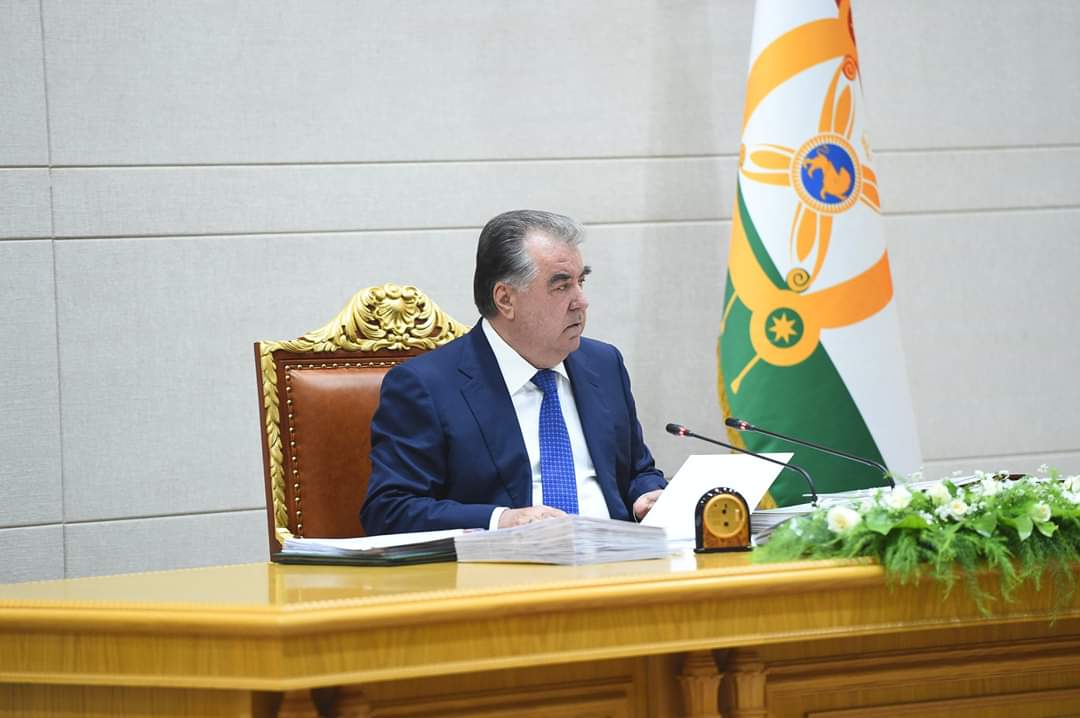President Emomali Rahmon yesterday held a meeting to discuss issues related to combating infectious diseases, including COVID-19, in the country, according to the Tajik president’s official website.
Rahmon reportedly ordered relevant ministries and agencies to take sanitary measures, disinfect streets, squares, public places, premises and residential buildings as well as carry out explanatory work among the population.
The Minister of Agriculture Amonullo Salimzoda reported on the process of implementation of Tajikistan’s agriculture reform program designed for 2012-2020
Tajik authorities officially confirmed the first cases of the novel coronavirus (COVID-19) in the country yesterday.
Speaking at an emergency meeting of the Commission for Prevention Coronavirus Pandemic, Prime Minister Qohir Rasoulzoda noted that ten cases of COVID-19 were in the Sughd province and the other five in Dushanbe.
The Commission also noted that the wearing of face masks became mandatory for all nationals of the country.
By Commission’s decision summer vacation has been announced for the first-, second- and third-year students. University graduates must pass their exams by May 15.
Recall, Rasoulzoda announced on April 25 that schools would be closed until at least May 10. Theaters and cinemas will be closed, football games suspended and there are to be no mass gatherings until instructions to the contrary. In recognition of correlated food security risks, Rasoulzoda also ordered a ban on the export of wheat, rice, lentils, peas, mung beans, eggs, potatoes and meat of all kinds. Units of Interior Ministry personnel have been dispatched across the capital and beyond to carry out disinfection of government buildings, sidewalks, streets and parks.
Meanwhile, Eurasianet says that WHO officials expected to travel to Tajikistan on April 30 said they were heartened by preparations made so far by the authorities to prepare for an outbreak.
Dorit Nitzan, a health emergencies coordinator for the WHO, reportedly said at an online press conference on April 30 that they know that Tajikistan has now 22 hospitals that are dedicated and prepared to receive patients. “They have already dedicated 3,000 beds in place,” Nitzan said.
Nitzan told reporters that 26 test samples were sent by Tajik health authorities to international WHO reference labs in Russia and the United Kingdom and that they had returned negative results, according to Eurasianet.




